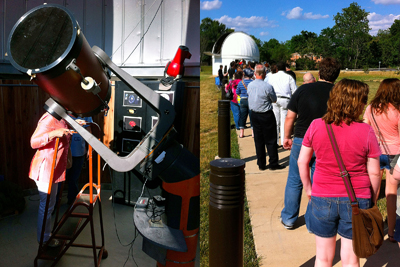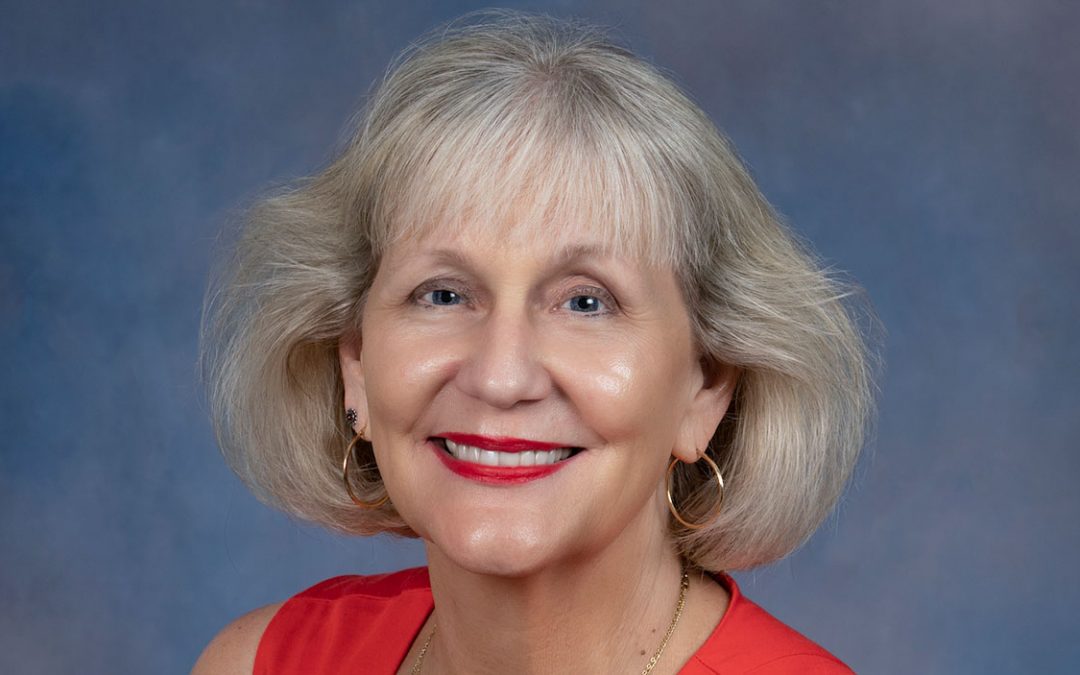
Peggy Mooney (left) of University City, Mo., peers into UMSL's 14-inch Celestron telescope Tuesday to view the transit of Venus across the sun. The rare celestial occurrence attracted 215 viewers to the Richard D. Schwartz Observatory. (Photos by Dan Younger)
A towheaded infant crawled down the grassy hill, oblivious to the spectacle high above her. An elderly man hobbled slowly along the walkway seemingly pleased to be a part of the same rare wonder.
Approximately 215 people stood patiently in line Tuesday evening at the University of Missouri–St. Louis to watch Venus pass in front of the sun. It was a tiny representation of the millions of people worldwide who joined astronomers and other scientists to view the transit.
Peering through the 14-inch Celestron telescope at UMSL’s Richard D. Schwartz Observatory, or the 8-inch Celestron set up on the lawn, viewers got to see the small black dot at the beginning of its journey.
The viewing started at 5 p.m., according to Erika Gibb, associate professor of physics and astronomy. Gibb, Bruce Wilking, professor of physics and astronomy, and several of their students manned the telescopes and fielded dozens of questions from the crowd. Filters covered the telescopes’ lenses to allow people to view the sun safely.
The transit of a planet across the face of the sun is a relatively rare occurrence. Venus will not take this same passage for another 105 years.
“The transit of Venus is historically significant because it allowed early scientists and people like Captain Cook and others to determine how far away the earth was from the sun,” Gibb said. “Now our measurements are really accurate and we can learn so much more.”
She said turning the world’s eyes to the skies will help generate interest in the science of transits, specifically NASA’s Kepler Mission. Launched in 2009, the Kepler spacecraft detects planets as they pass in front of their stars. It is searching for Earth-like planets orbiting other stars outside our solar system.
The Schwartz Observatory offers a monthly open house in the evenings from February through November to view the night sky through the Celestron telescope. It is open to the public and graduate students are on hand to point out constellations and answer astronomy questions. Leading up to the transit of Venus, Gibb conducted multiple news media interviews explaining the significance of the event.














